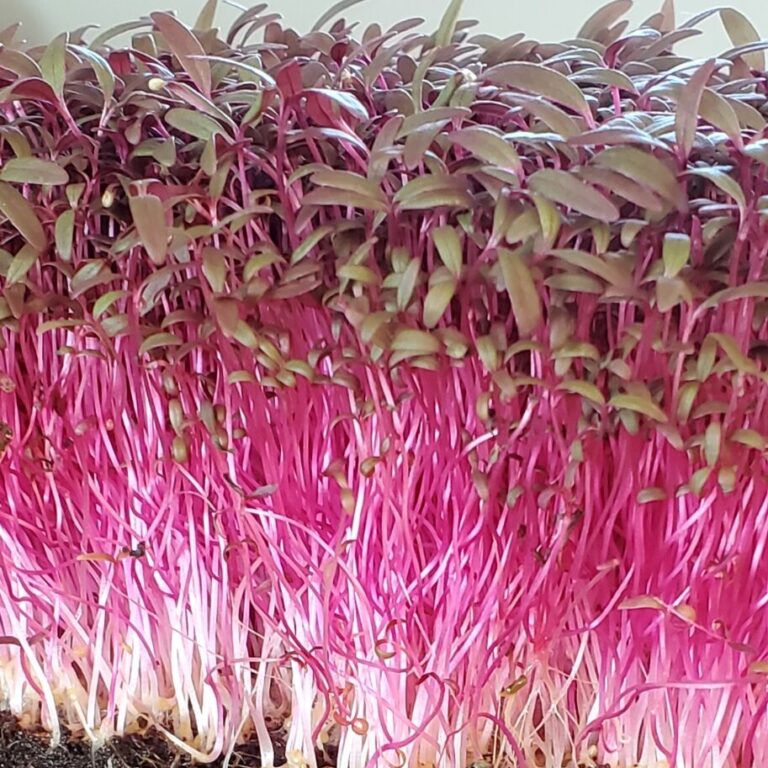Amaranth

Amaranth is a genus of more than 60 different species of grains that have been cultivated for thousands of years and have recently gained popularity as a health food. These grains were once considered a staple food in the Inca, Maya, Aztec and Roman civilizations. It is a symbol for immortality as its flowers are said to never fade.
Amaranth is classified as a pseudocereal, meaning it is not a cereal grain like wheat or oats, but it shares a comparable set of nutrients and is used in similar ways. Its earthy, nutty flavor works well in a variety of dishes. Amaranth has vibrant red stems and fine medium green leaves.
Amaranth also contains high levels of protein and is rich in antioxidants and micronutrients is also high in:
Vitamin C – an anti-oxidant that helps remove harmful free radicals from the body, has immune boosting, wound healing and anti-viral effects
Vitamin E – a fat-soluble anti-oxidant, helps keep the immune system strong against viruses and bacteria, is important in the formation of red blood cells, helps the body use vitamin K and helps widen blood vessels and keep blood from clotting inside them. May be beneficial in the prevention of cancer, heart disease, dementia, liver disease, and stroke
Vitamin K – a group of vitamins required for blood clotting and helping wounds to heal; may also help keep bones healthy
Amino Acids – provide cells with enzymes that perform vital processes including tissue repair, building proteins and muscle, regulating immune function, and synthesis of hormones and neurotransmitters
Carotenoids – antioxidants that aid in lowering inflammation and improving cardiovascular health, help protect cells from free radicals and may be able to prevent cancer growth
Copper – an essential mineral that helps maintain a healthy metabolism, promotes strong and healthy bones and ensures your nervous system works properly, also helpful in weight loss programs
Iron – a component of hemoglobin inside the red blood cells that determines the oxygen-carrying capacity of the blood
Magnesium – vital for DNA synthesis and muscle contraction, aids in regulating muscle and nerve function, blood sugar levels, blood pressure, and making protein and bone
Manganese – especially important for brain function and is believed to protect against certain neurological conditions.
Phosphorus – important in the formation of bones and teeth, plays an important role in metabolism of carbohydrates and fats and is also needed to make protein for growth, maintenance, and repair of cells and tissues
Potassium – a type of electrolyte, it helps nerves to function and muscles to contract and helps regulate heartbeat
Selenium – important for reproduction, thyroid gland function, DNA production, and protecting the body from damage caused by free radicals and from infection

